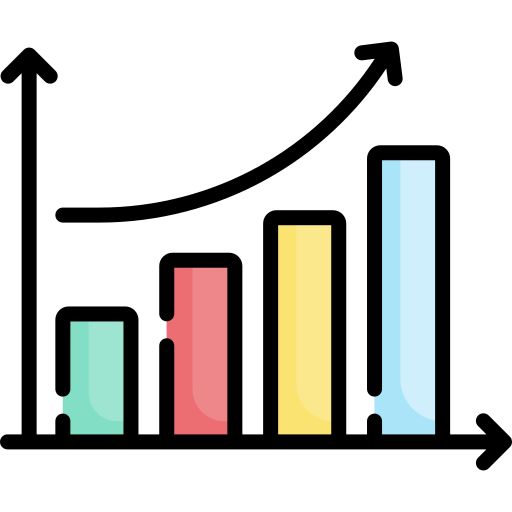University Research Methodology 1 (URM1 - Dr. Hamoudi Aboubakr - 2023-2024
Topic outline
-
This course introduces and discusses approaches, strategies, and data collection methods relating to research in social sciences. Students will consider how to select the appropriate methodology for use in a study to be performed. Additionally, these students will learn how to collect data based on different data collection methods, construct these tools, and pilot them before they become ready for use. Finally, this course elucidates the requirements for an academic work, considering aspects related to language, writing style, and lay-out. To culminate this final stage, students will learn to write a comprehensive research proposal that may be conducted in the future.

-
 Lecturer: Dr. Aboubakr Hamoudi
Lecturer: Dr. Aboubakr HamoudiEmail: aboubakr.hamoudi@univ-msila.dz
-
 Master one Students enrolled in Online Masters Programme at Mohamed Boudiaf University of M'sila
Master one Students enrolled in Online Masters Programme at Mohamed Boudiaf University of M'sila -
This course aims to guide Master One students at the Section of English in the university of Msila towards achieving competence and proficiency in the theory of and practice to research. This fundamental objective can be realised through helping these students to develop the subject of their research, encourage the formation of higher level of trained intellectual ability, critical analysis, rigour, and independence of thought, foster individual judgement, and skill in the application of research theory and methods, and develop skills required in writing research proposals, reports, and dissertation; and
In more specific practical aims, the present course aims to:
- enable Master One students understand what research is and what is not.
- raise awareness of crucial aspect of the nature of Knowledge and the value of scientific method.
- introduce the concept at the heart of every research project –the research problem- and to discuss what a researchable problem is.
- evaluate literature, form a variety of sources, pertinent to the research objectives.
- identify and justify the basic components of the research framework, relevant to the tackled research problem.
- explain and justify how researchers will collect research data.
- discuss how to cite sources, using the American Psychological Association (APA), and justify this choice.
- consider the kind of language to use in an academic written work.
- put forward a credible research proposal, and
- finally, warn the common mistakes in the field of research methodology.

-
-

-
The literature review lesson covers the importance and purpose of conducting a literature review in research and academic writing. It explains how a literature review provides an overview of the current state of knowledge in a particular field, identifies gaps and inconsistencies in the literature, and guides the development of research questions or hypotheses. The lesson also covers the steps involved in conducting a literature review, including formulating search terms, selecting appropriate databases, evaluating sources for credibility and relevance, and synthesizing and analyzing the literature. Students will learn how to organize and present their literature review in a clear and coherent manner, using appropriate citation and referencing styles. The lesson emphasizes the importance of critical thinking and analysis in conducting a literature review, and highlights the potential benefits of a well-executed literature review for both researchers and readers
-
Lesson
-
File
-
Welcome to our forum on writing a literature review! This forum is designed to help you understand the process of conducting a literature review and provide you with the necessary resources and guidance to complete this task.
-
This Quiz is closed now
-
Assignment
The purpose of a literature review is to offer an overview of the state of knowledge on a topic, identify trends, debates, and gaps in the research, and provide a foundation for further research.To write a literature review, you should follow these steps:
- Define the purpose and scope of the review.
- Search for relevant literature using databases, search engines, and other sources.
- Evaluate and select sources based on their relevance, credibility, and quality.
- Identify themes, debates, and gaps in the literature.
- Outline the structure of the review, including an introduction, body, and conclusion.
- Write the review, using critical analysis and synthesis to provide a coherent picture of the research field.
-
-
In this lesson, students will learn about the importance of research questions and hypotheses in conducting research studies. They will explore the differences between research questions and hypotheses, and understand how to formulate testable hypotheses based on research questions. The lesson will cover the various types of research questions and hypotheses, including null and alternative hypotheses, research and statistical hypotheses, and directional and non-directional hypotheses. Students will also learn how to write clear and concise research questions and hypotheses, and how to operationalize variables in order to test hypotheses using empirical data. Through a combination of lectures, discussions, and hands-on activities, students will develop a deeper understanding of the role of research questions and hypotheses in the scientific research process, and how to use them to design and conduct their own research studies.
-
File
-
A hypothesis is a statement that expresses a possible relationship between variables or phenomena, based on existing knowledge, theory, or observation. A research question, on the other hand, is a question that seeks to explore or explain an aspect of your topic, without making any assumptions or claims
-
This assignment is not available now
Writing research questions and hypotheses is a crucial step in the research process, as they set the foundation for the study and guide the researcher towards the desired outcomes. Research questions are the starting point of a research study, and hypotheses are predictions about the relationships between variables that can be tested through scientific research methods.
-
Quiz
This quiz will open later on
-
The task of data collection begins after a research problem has been defined and research design/ plan chalked out. While deciding about the method of data collection to be used for the study, the researcher should keep in mind two types of data viz., primary and secondary. The primary data are those which are collected afresh and for the first time, and thus happen to be original in character.
The secondary data, on the other hand, are those which have already been collected by someone else and which have already been passed through the statistical process. The researcher would have to decide which sort of data he would be using (thus collecting) for his study and accordingly he will have to select one or the other method of data collection. The methods of collecting primary and
secondary data differ since primary data are to be originally collected, while in case of secondary data the nature of data collection work is merely that of compilation. We describe the different methods of data collection, with the pros and cons of each method.-
File
-
This is for further reading.
-
Very brief series to explain the different Data collection methods. Do NOT miss it
-
Quiz
-
Assignment
-
-
A population is a complete set of people with a specialized set of characteristics, and a sample is a subset of the population. The usual criteria we use in defining population are geographic, for example, “the population of Uttar Pradesh”. Moreover, Population and sampling are crucial concepts in research, particularly in quantitative research methods. A population refers to the entire group of individuals, objects, or events about which a researcher wants to draw conclusions. In contrast, a sample is a subset of the population that is selected for the purpose of data collection
-
A space to evoke your questions and concerns about the topic
-
Quiz
This quiz will open later.
-
A strong research proposal in education acts as a roadmap for your investigation. It outlines the educational issue you'll explore, why it's important, and how you'll tackle it. You'll present your research questions, chosen methods for data collection and analysis, and steps to ensure ethical conduct.
-
Lesson
A research proposal is a document that outlines a research project, including the research question, the significance of the research, the methodology, and the expected outcomes. It is typically used to persuade potential supervisors and funders that the research is worthy of their support.A well-written research proposal should include several key elements, including a clear and concise title, a literature review that demonstrates the researcher's understanding of the current state of knowledge in the field, a clear and focused research question or hypothesis, a description of the research methods and techniques that will be used to answer the research question, and a timeline for completing the research.
The research proposal should also demonstrate the researcher's ability to communicate their ideas clearly and concisely, and should provide evidence of their understanding of the relevant literature and their ability to conduct research in a rigorous and ethical manner.The format of a research proposal can vary depending on the field and the requirements of the funding agency or academic institution, but most proposals should include an introduction, a literature review, a research design and methods section, and a reference list.Overall, the goal of a research proposal is to demonstrate the feasibility, significance, and potential impact of the proposed research, and to persuade potential supervisors and funders that the research is worthy of their support.
-
YOU can Download these samples and use them in your RP writing up.
-
A space where you can launch debates on the topic of RP
-
You can download this sample and you is in your R P writing.
-
Quiz
This is unavailable now
-
AssignmentOpened: Sunday, 21 April 2024, 10:30 PMDue: Thursday, 30 May 2024, 10:30 PM
Objective:
The purpose of this assignment is to help you develop a research proposal for the project of your Msaters dissertation writing you would undertake in Didactics. By the end of this assignment, you will have clear research questions and hypotheses, a well-defined research design, and a detailed plan for conducting your research. -
Opened: Friday, 31 May 2024, 10:00 PMClosed: Friday, 31 May 2024, 10:51 PM
 This Quiz is a sum of 41 questions including MCQs, Fill in the gaps as well as select and drag questions. You have 50 minutes to complete it. Be quick with MCQs to have more time left for the other questions.. Best of luck.
This Quiz is a sum of 41 questions including MCQs, Fill in the gaps as well as select and drag questions. You have 50 minutes to complete it. Be quick with MCQs to have more time left for the other questions.. Best of luck.
-

